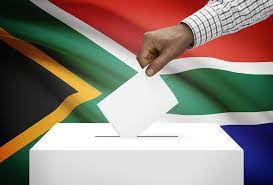APA-Johannesburg (South Africa) A coalition of South African opposition parties will meet next month to discuss a pre-poll pact ahead of the 2024 general elections in a development likely to pile more pressure on the beleaguered governing African National Congress (ANC).
In a joint letter on Monday, the leaders of the main opposition Democratic Alliance (DA), Inkatha Freedom Party, Freedom Front Plus, Action South Africa, National Freedom Party, United Independent Movement and Spectrum National Party said they would hold a national convention on 16 and 17 August in Johannesburg.
They said that they were working in unison to provide hope and a new way forward for South Africa, and that they had a responsibility to provide a viable path to achieving the 50 percent-plus-one majority needed to form a government without the ANC, the Economic Freedom Fighters (EFF) and their proxies.
“The credible prospect for a change in government next year is cause for optimism. But it also places a profound responsibility on the shoulders of opposition parties that want to take South Africa into a fundamentally better direction,” the letter said.
It added: “It is with this great responsibility in mind that the leaders of our seven organisations have held a series of exploratory over the past two months. The aim of these meetings has been to lay the foundation for a national convention where the leaders of opposition parties can come together to negotiate a pre-election pact.”
The agenda for the convention would include discussion of the values and principles that would guide a coalition government, the formulation of a “joint minimum programme of action”, the rules of engagement during the upcoming election campaign, and a formula to form a cabinet should the coalition be victorious in the 2024 election.
The party leaders said they are aware of the challenges and complexities involved in forming a pre-election pact, but they are confident that these would be overcome through robust, honest and constructive negotiations.
They said that they had no predetermined outcomes, and that each party would ultimately decide whether it wanted to formally join the pact once negotiations had been concluded.
The opposition parties hope that by forming a pre-election pact, they can present a united front against the ANC and appeal to a broader spectrum of voters who are disillusioned with the ruling party.
A divided ANC, which has governed South Africa since independence in 1994 but has seen its support base dwindle in recent years amid allegations of corruption, mismanagement, factionalism and poor service delivery.
In the last general elections held in 2019, the ANC received 57.5 percent of the national vote, its lowest share since 1994. The DA received 20.8 percent, followed by the EFF with 10.8 percent.
The ANC has also been struggling to maintain its majority in several provinces and municipalities, especially in Gauteng, Western Cape, Northern Cape and KwaZulu-Natal.
In some cases, it has had to rely on coalitions or cooperation agreements with smaller parties or independent councillors to stay in power.
JN/APA


